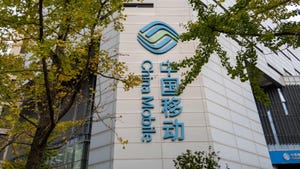ISP groups renew ACP push as New York mandates $15 broadband
With a federal appeals court upholding New York's affordable broadband law, industry groups are urging Congress to 'maintain support for low-income Americans on a nationwide basis.'

A federal appeals court on Friday upheld a New York law mandating that service providers offer $15 broadband plans for low-income residents. The issue appears to be generating more urgency around re-funding the Affordable Connectivity Program (ACP), which is on track to offer partial benefits in May before running out of funds entirely.
For brief background, New York – under then-Governor Andrew Cuomo – passed the Affordable Broadband Act (ABA) in 2021, mandating that broadband providers offer plans of $15 for low-income households. That law was swiftly challenged in a lawsuit brought by industry trade groups, leading to a settlement and injunction. But New York then appealed the decision, supported by consumer groups and 22 other states. Oral arguments were heard in January 2023.
Now, a day following the FCC's vote to reinstate Title II rules, the second circuit court of appeals on Friday issued a ruling saying it disagreed with the plaintiffs' argument that federal law preempts New York state law, and allowing the law mandating affordable broadband to stand.
"First, the ABA (the New York law) is not field preempted by the Communications Act of 1934 (as amended by the Telecommunications Act of 1996), because the Act does not establish a framework of rate regulation that is sufficiently comprehensive to imply that Congress intended to exclude the states from entering the field," states the decision.
"Second, the ABA is not conflict-preempted by the Federal Communications Commission's 2018 order classifying broadband as an information service. That order stripped the agency of its authority to regulate the rates charged for broadband internet, and a federal agency cannot exclude states from regulating in an area where the agency itself lacks regulatory authority," adds the ruling.
In a statement following the ruling, industry trade groups that brought the initial lawsuit expressed "disappointment" and pushed Congress to address the issue at the federal level.
"We are disappointed by the court's decision and New York state's move for rate regulation in competitive industries. It not only discourages the needed investment in our nation's infrastructure, but also potentially risks the sustainability of broadband operations in many areas," said industry trade groups including ACA Connects, CTIA, NTCA, New York State Telecommunications Association, Satellite Broadcasting & Communications Association and USTelecom. "We urge Congress to maintain support for low-income Americans on a nationwide basis."
The request to "maintain support" is a push for Congress to fund the Affordable Connectivity Program (ACP), currently subsidizing broadband for 23 million low-income households to the tune of $30/month. That includes 1.79 million households in the state of New York.
But despite broad support for a bill to extend the ACP with $7 billion, and a push for lawmakers to move the bill to the floor through a discharge petition, Congress is unlikely to act.
Indeed, in a letter to telecom industry groups NCTA and CTIA last week, a group of Senate Democrats seemed resigned to the fact that the ACP extension bill won't pass in time to stop the funding shortfall and instead urged service providers to keep full ACP support going in May without the federal benefit. According to the FCC, the ACP subsidy will drop from $30 to $14 in May.
"With the Federal Communications Commission (FCC) announcing that it is able to fund only a portion of benefits for households enrolled in the Affordable Connectivity Program (ACP) in May, we urge your members to cover the remainder of these costs to ensure families do not face higher internet expenses," states the letter, signed by Sen. Ed Markey (D-MA), alongside Senators Laphonza Butler (D-CA), Bernie Sanders (I-VT), Elizabeth Warren (D-MA) and Ron Wyden (D-OR).
"With internet service providers having received billions of federal dollars in ACP funds, covering the May shortfall is a small price for your members to pay to demonstrate their commitment to putting their subscribers first," the senators added.
Path for other states
In a note for New Street Research on Friday, telecom analyst and former FCC official Blair Levin called the court decision on New York's affordable broadband requirement a "negative for ISPs" and added that it "paints a path that other states will look at as the Affordable Connectivity Program (ACP) runs out of funds."
It remains to be seen if other states take a cue from New York and attempt an affordable broadband law of their own. But it's reasonable to look to the states that joined New York's appeal of the injunction as possible places where that could happen. Those states include California, Connecticut, Delaware, Hawaii, Illinois, Maine, Maryland, Massachusetts, Michigan, Minnesota, Nebraska, Nevada, New Jersey, New Mexico, North Carolina, Oregon, Pennsylvania, Rhode Island, Vermont, Virginia, Washington and Wisconsin – plus the District of Columbia. In their 2021 brief supporting New York's appeal, the states alleged that the "plaintiffs' preemption theories would undermine the states' abilities to protect their residents."
"In a world where the federal government is subsidizing low-income households for $30 a month, states did not need to take action to address low-income broadband affordability," added Levin in his New Street Research note. "Now, with ACP going away, states may try to assist low-income households to keep them connected."
Read more about:
ACPAbout the Author(s)
You May Also Like












